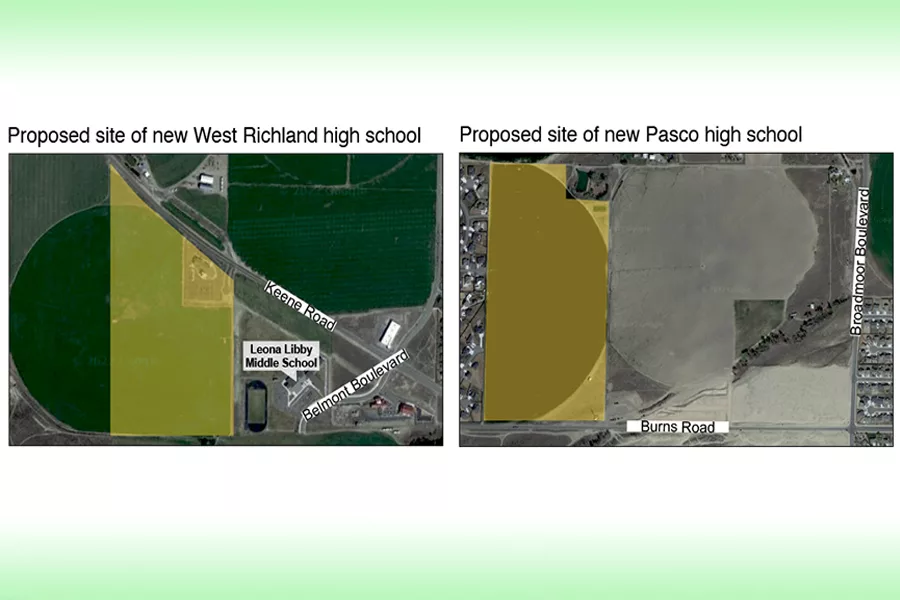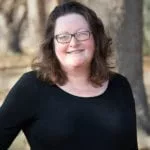
Home » Richland, Pasco ready to make the case for a third high school
Richland, Pasco ready to make the case for a third high school

May 12, 2022
The Richland and Pasco school districts each are preparing to make the case for a third high school.
It will be the first new full-service high school for the Richland district since Hanford High opened in 1972 and for the Pasco district since Chiawana High School opened in 2009.
Both plan to ask voters to approve new bonds to pay not only for new high schools, but smaller facilities as well. Richland will seek $300 million or more, depending on which of three sets of projects its board chooses. Pasco will seek nearly $200 million.
Both are targeting the Feb. 14, 2023, election day. If approved, the districts will assess new property taxes to pay for them starting in 2024. Low-income seniors and those with disabilities may be eligible for some exemptions from some voter-approved property taxes in Washington.
Pasco has confirmed its bond plan. Richland is reviewing three potential scenarios. But with a starting price of $300 million, it will be the biggest ask it has ever submitted to voters. The most expensive version is more than $380 million and would put Richland at the top of its capacity to borrow money.
“We know it’s a big number,” said Ty Beaver, the district’s spokesperson. “Costs aren’t going down any time soon.”
Superintendent Shelley Redinger said that once the board settles on a package of projects to fund, the campaign will shift into high gear, though the district itself is limited to sharing information without openly advocating for passage.
Bonds typically are repaid over
20 years from revenue generated by new property taxes, which must be approved by voters.
The proposed bond amounts do not include additional matching funds the state provides to build new schools and other capital projects.
Richland School District
- Option A builds a new comprehensive high school in West Richland, a new River’s Edge High School and a new maintenance and operations facility. Relocating the facility from central Richland would free space at Richland High, which is landlocked. The $303 million bond would cost property owners an estimated $1.04 per $1,000 of assess value in new property taxes, or $520 a year for a home with a tax value of $500,000 home.
- Option B includes the features of the first package and adds amenities at Hanford and Richland high schools, expands options at Three Rivers HomeLink and makes safety and security updates throughout the district. The
$336 million bond would cost property owners an estimated $1.34 per $1,000 of assessed value on their property tax bills, or $670 a year for a home with a tax value of $500,000. - Option C includes the projects in the first two packages and funds an additional elementary school at a location to be determined. The $383 million bond would cost property owners an estimated $1.94 per $1,000, or $970 a year for a home with a taxable value of $500,000. Option C would push the district to the top of its debt limit, precluding it from borrowing more money for a decade or longer, said Clinton Sherman, the district’s executive director for financial services.
Pasco School District
The district will ask its voters to support a bond totaling $198.5 million, a figure that excludes matching funds from the state.
The breakdown includes $140 million for a full-service, 2,000-student school on district-owned land off Burns Road,
$38 million for a small “innovative” high school with capacity for 600,
$2 million for athletic fields, $11 million to modernize Pasco and Chiawana high schools and $7.5 million to purchase land.
The cost to taxpayers: 47 cents per $1,000, or $235 for a home with a tax value of $500,000. The figure could be lowered if the district leverages other resources, including proceeds from a 2017 bond and impact fees levied on new development.
Both new high schools would open in August 2025.
Both the Richland and Pasco districts have discussed adding third high schools for several years, which is why both have already purchased sites.
Richland set aside 65 acres for its next high school in West Richland. It planned to submit a bond to voters in February 2021 but delayed because of the Covid-19 pandemic.
Since its last bond passed in 2017, Richland and West Richland – the cities that share a border with the school district – authorized a combined 2,537 single-family homes. That figure excludes townhomes, apartments and other residential developments that contribute students to local schools.
Over the same period, enrollment was mostly unchanged, dropping to 14,027 from 14,069 in 2017-18, according to the Office of the Superintendent of Public Instruction.
Since Pasco’s last bond passed in 2017, the city of Pasco and Franklin County – the entities that share borders with the school district – authorized a combined 2,876 new single-family homes, excluding townhomes, condos, apartments and so forth.
Over the same period, enrollment grew to 18,749, from 18,401 in the 2017-18 school year.
Both districts say their primary high schools are crowded.
Richland and Hanford, designed for about 1,600, have more than 2,000 students each.
Pasco High School serves 2,466 students and Chiawana clocks in at a state-leading 3,150 students.
Over-enrollment reduces opportunities for students.
“There are only a certain number of players on a basketball court,” Redinger said. Leadership opportunities, spaces in music, band, drama and other activities are under pressure too.
Real Estate & Construction Local News
KEYWORDS may 2022





